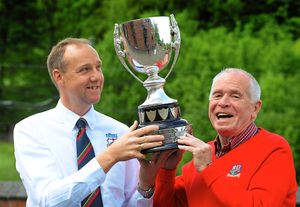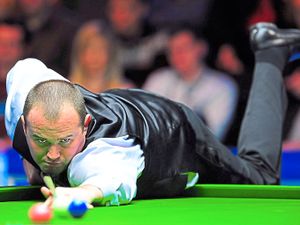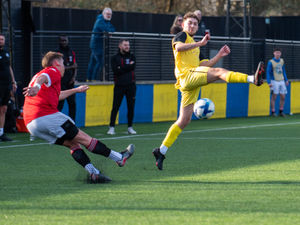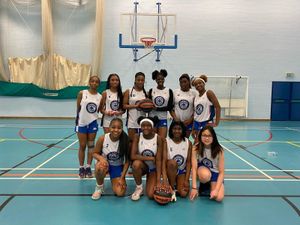Fight to save cup that even war did not stop
Not even a World War could stop the JW Hunt Cup from being played.
Since 1926, the competition has been a permanent fixture on the region’s non-league football calendar, featuring hundreds of teams and thousands of players while raising more than £360,000 for the Beacon Centre for the Blind.
And though the coronavirus pandemic means this season’s edition might be the first not to be completed, organisers have not given up hope of continuing their proud tradition and finding a way to finish whenever football is allowed to resume.
Right now the odds seem stacked against a competition which was still at the quarter-final stage when sport across the country was brought shuddering to a halt.
But with this season’s £10,000 funding target still to be met, organisers are not ready to accept defeat just yet.
“Fundraising is the main focus of the cup and always has been,” explained JW Hunt Cup president Alex Hamil.
“We’ve raised some money already through this year’s competition and that will all be passed on to the Beacon Centre.
“But our biggest boost always comes from the final, which is played every year at Molineux.
“Obviously right now staging those kinds of events is impossible and we are in God’s hands as to when football can be played again with fans present.
“It’s a very popular competition and we have had a lot of people get in touch. We just want them to know we have not given up yet and are still hopeful of getting this season’s competition finished, whenever we are allowed to.”
The cup was named in memory of founder John William Hunt, owner of the Chillington Tool Company, who died before the inaugural competition was completed.
Short Heath United were the first winners, beating Cannon Iron at Molineux in the final in front of a crowd of more than 1,000, while teams from the Birmingham, Staffordshire, Shropshire and Worcestershire FAs enter every year. Wolverhampton World Cup final referee Jack Taylor was among the longest-serving committee members, while the fact the cup was still staged during the Second World War, when professional and amateur cup competitions were largely suspended, makes it the longest-running continuously played competition in the region, if not the country.

A blue plaque now sits outside the Molineux Hotel to commemorate the first-ever meeting of the organising committee, which took place there in 1926.
The competition even has its own museum, housed at Molineux in the Steve Bull Stand.
Little wonder former Wolves owner Sir Jack Hayward used to describe the JW Hunt Cup as a piece of Wolverhampton’s sporting history.
“If you are from Wolverhampton then you probably know someone who has played in the JW Hunt Cup. For many people that is the attraction,” said Hamil.
“It might be your grandad, a cousin or your neighbour. The final is always like something of a pilgrimage for some people. They come every year to catch up with friends.
“We usually get more than 1,000 people turn up even if their team isn’t playing. It’s a reunion more than anything else.
“There used to be lots of charity cups held every season. The JW Hunt is the one which has always kept going.”
Sporting Khalsa are the current holders after beating Highgate United 4-1 in last year’s final and were still in this year’s competition before it was stopped, along with the rest of football, in mid-March.
Though the professional game is now stepping up plans for a possible comeback in June, the outlook is not so positive in non-league, where playing out matches behind closed doors is not an option for clubs who depend on gate receipts and bar takings for their income.
The JW Hunt Cup, from which semi-final and final gate receipts all go into the charity pot, finds itself in precisely the same boat. Fitting in the final rounds at the start of next season remains the only hope, though there is simply no way of knowing yet when that might be.
“What is happening across the country at the moment is terrible. I have not seen anything like it in my lifetime,” said Hamil, who has sat on the cup committee for 60 years and was awarded the MBE in 2013 for services to football and the visually impaired.
“We know things are completely out of our hands. But we owe it to everyone, particularly the Beacon Centre, to do everything we can to try and keep things going.”





